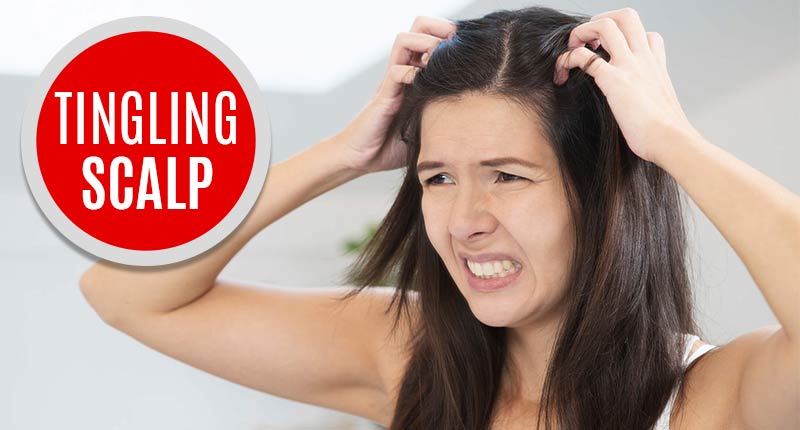You experience tingling in the head and it makes you feel uncomfortable and annoyed. It is called a tingling scalp or paresthesia. This issue often occurs when you are under pressure for a long time and a nerve is damaged. In most cases, the tingling scalp will take off quickly and not cause lasting harm.
However, it is very necessary to learn about the possible causes of this scalp problem and how to treat it. Reading on for more information about the tingling scalp.
Table of Contents
Definition
Tingling or pins-and-needles is a common skin issue that everyone may experience. Not only in the head, tingling also occurs in other parts of the body, such as arms, legs, feet, etc. Also, it often comes with itchiness, burning feeling, and even dizziness.
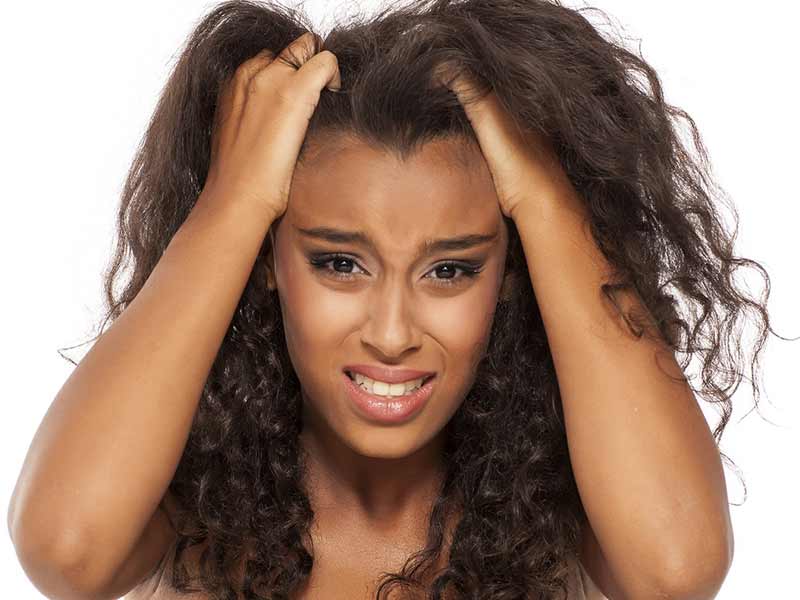
Tingling scalp is a type of head paresthesia. If you are under pressure for a long period of time, it put on a nerve, tingling may appear.
There are a wide variety of reasons causing tingling scalp and headaches. They may be temporary or chronic causes. Keep reading to discover more about the tingling sensation on the head.
Main causes of tingling scalp
This scalp issue can occur as a result of skin irritation, head injuries, medication side effects, stress or anxiety.
Other issues:
- How To Prevent Hair Breakage While Sleeping
- Fenugreek Seeds For Hair – How To Make The Best Use Of It?
- Want To Foster Natural Hair Regrowth? Do These Things!
- 7 Best Hair Thickening Shampoo For Significant Volume Boost
Skin irritation
This cause is the most common one. The main culprits for skin irritation are harsh chemicals in products, such as bleaches, dyes, or heat processes for the mane. If you feel tingling scalp after bleach, please ask your hairstylist or visit a doctor before it turns worse.
Here are other sources of scalp irritation:
– Laundry detergents
– Soaps
– Shampoos and conditioners
– Cosmetic products
And more.
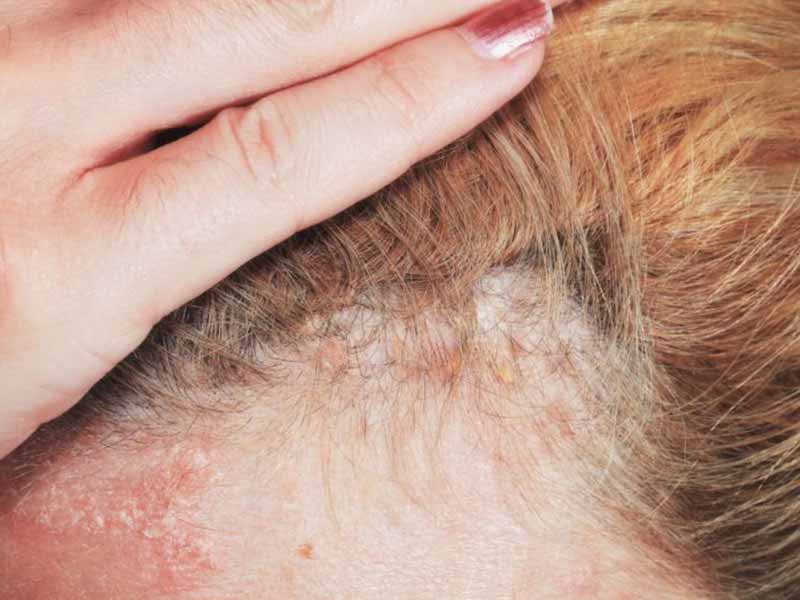
For instance, some poor-quality hair care products available on the market can cause a tingling scalp. If you don’t wash them out thoroughly, it will cause itchiness.
Whats’s more, some people with a sensitive scalp can be affected by environmental factors. Pollution can cause tingling scalp and hair loss if you don’t treat it timely.
Scalp condition
You feel itching and burning every time, when waking up or at night, it may be due to your bad skin condition. An array of skin diseases, like seborrheic dermatitis, psoriasis, etc. affect the skin on the head. It is accompanied by red or rash skin, and flakiness.
– Seborrheic dermatitis: Your scalp appears red and swollen areas, following by itching and tingling.
– Psoriasis: This form often causes red patches and flakiness on the head. It happens when your skin cells propagate and reproduce faster than normal. Bear in mind that the more you scratch, the more you itch.
– Folliculitis: This is another common condition that causes a tingling scalp. It appears when bacterial and fungus attack your hair follicles, leading to a swollen and inflamed scalp.
As well, scalp eczema, burning or itchy scalp, etc. also cause tingling scalp and dizziness in children than adults.
Anxiety
Many people suffer from tingling scalp anxiety, and it’s normal. The nerves may be damaged due to long-term stress or anxiety. A study shows that panic also causes paresthesia. Stress hormones will direct the blood circulation to other parts of the body that need it most. As a result, you can experience headaches and tingling.
Anxiety and stress cause other symptoms, they are:
– Rapid heart rate
– Dizziness
– Nausea
– Difficulty of breathing
Medication adverse effects
You are taking certain medications to treat high blood pressure, hyperactivity, etc. you may feel itching and tingling. It is an unwanted effect of the medicine. However, it is a temporary problem and disappears when you stop taking medicine.
If your scalp tends to be serious and bothersome during the time of using medications, you should stop it and visit your doctor or dermatologist.
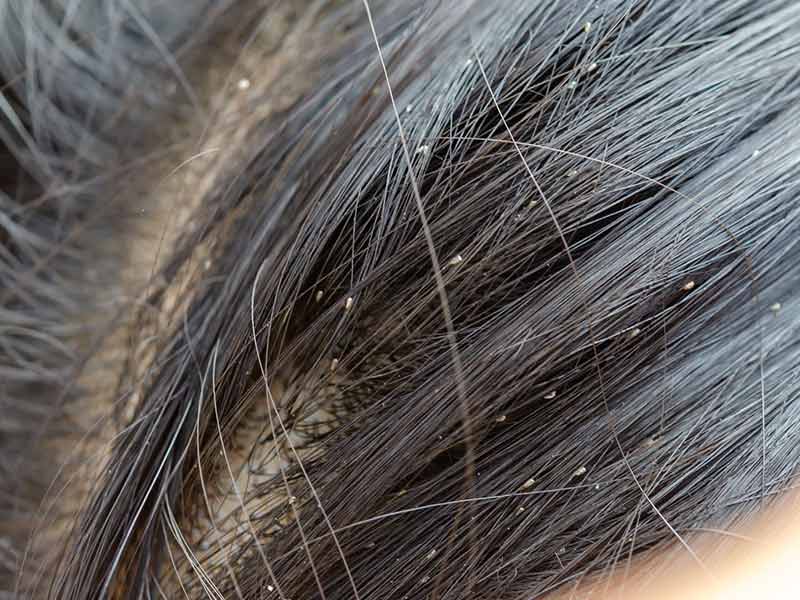
Head lice or nits
These small insects are also the culprit of the tingling scalp. They bite the scalp to feed on blood, and you will feel a tingling sensation. Even, they cause red patches and painful areas of skin on the head.
Other causes:
– Head injuries
– Diabetes, high blood pressure
– Poor hygiene
– Ringworm
Read more:
- 6 Amazing Tips On How To Get Hair Dye Off Of Skin?
- 3 Doubts About Human Hair Bundles You Need To Clarify
- These Hair Shine Spray Will Help Add Magical Shine To Your Tresses
- Irritated With Your Burning Scalp? Here’s How To Deal With It
Useful tingling scalp treatments
How to treat the tingling scalp? It depends on the source of your problem. This skin condition does not always need medical treatments. In some cases, it will disappear on its own if a hair product is the culprit of scalp tingling.
To treat your skin condition, you should use a gentle shampoo, such as items for babies or sensitive scalp. Before applying to your scalp, test on your small patch of skin on your hand first.
Next, try to control and improve your mental health. Because stress or panic will make the skin condition worsen. Please stay healthy and spend time relaxing after working. Plus, you can take part in some yoga courses, exercise, and get enough sleep to minimize stress efficiently. Also, maintain good hygiene to protect your skin from related-scalp problems, especially on cold days. Don’t skip lock in moisture
Taking medication treatment to treat skin conditions, such as psoriasis, folliculitis, etc. You can take prescription medication, apply topical creams, or special treatment shampoo to improve your scalp state.
What’s more, experts recommend eating foods that contain vitamin B12 and essential minerals for health and hair. Also, avoid using products source of alcohol, parabens, sulfates, to improve your skin condition.
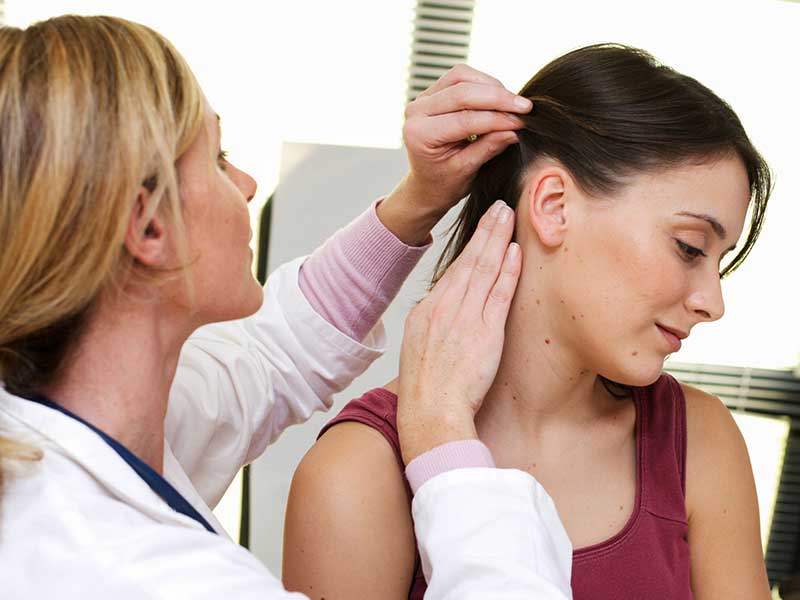
When to see a dermatologist or doctor
If your skin becomes serious and worse, you have to visit your dermatologist or expert. Make an appointment with an expert so that they help you determine the main causes of scalp tingling and find the right solution to treat your problem.
To summarise
Fighting against a tingling scalp is not too hard yet not easy if you do not know clearly about it. As mentioned, there are many causes of scalp sensation, but most of them are treatable. It would be better if you learn, consider, and find out the right one to treat tingling scalp hair growth.
Would like to get more information, feel free to visit our website. Many exciting writings and hair care tips are waiting for you to discover.
And don’t forget to share this post with familiars if you find it useful.


